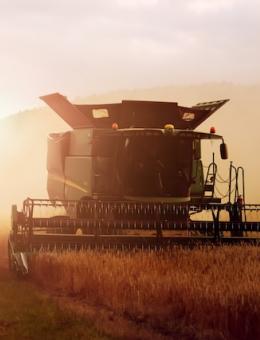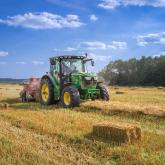
SUCCESSION: HOW THE FAMILY FARM TAX IS CONCENTRATING MINDS
Published 12 September 2025
The announcement that this year’s Budget will take place on 26th November underlines that it is nearly 12 months since Rachel Reeves dropped the inheritance tax bombshell in her last announcement – and the implications of that decision continue to reverberate throughout the farming community, writes Tom Corfield.
Anecdotally, one of the biggest effects has been to focus minds on succession, and especially the timing of handing an agricultural business to the next generation.
Whereas previously this often didn’t happen until the older generation was ready to fully retire – frequently into their 70s or later – the need to survive seven years after passing on the farm and its assets to avoid it being torn apart by a big inheritance tax bill means that we are starting to see farmers in their late 50s deciding the time has come to pass on the baton.
There are some benefits to this. If the next generation can take over the business while they are still young enough to have the energy and the new ideas to drive it forward, that could result in a more dynamic, successful venture.
But it does mean that rather than sliding gracefully into retirement, the older generation will still need to play a role in the business – potentially leading to disagreement and conflict.
In any farm succession scenario, agreeing on roles for both older and younger generation is crucial. As we start to see farmers with potentially more than a decade of working life ahead of them hand over the reins, the need to do this is becoming even more compelling.
The incoming younger generation needs to recognise the value of the experience, wisdom and skills which the older generation has acquired across a lifetime of running the farm. At the same time, the older generation has to acknowledge that the younger generation will want to do things their own way, and will bring new ideas to the table.
That mutual respect is a good starting point for building a smooth transition and a succession plan which works for everyone. But alongside that must come a concrete plan, an agreement as to who will do what, who makes which decisions, and who will take the lead on driving the business forward. It’s a good idea to put this down in writing, both to provide clarity, and to create a mechanism for dealing with any future disputes.
Whilst the family farm tax is a massive cloud hanging over agriculture, the silver lining is that it is concentrating minds on more effective succession plans – and this is something which can only be good for farming.
Share this story
Arnolds Keys Blog

GIVE US SOME CLARITY, PLEASE, MRS REEVES
5 September 2025
With the announcement this week that the Budget won’t take place until 26th November, there is plenty of opportunity for the waves of speculation about Mrs Reeves’ plans when it... Read more >

THE IMPORTANCE OF A FARM POLICY TO TACKLE BLACKGRASS
23 August 2025
In the very tight financial position which most farms find themselves, anything which affects yields even in a small way is something that needs to be tackled – and the... Read more >

LIVING ABOVE THE SHOP: THE APPEAL OF MIXED USE PROPERTY INVESTMENTS
20 August 2025
Not so long ago, ‘living above the shop’ was a common situation for many business owners, writes Harry Downing. Read more >

THE 1,000 DAY TENANCY – AND WHY IT’S GOOD NEWS FOR LANDLORDS
15 August 2025
Anyone who thinks that the residential lettings market is characterised by a highly transient population of tenants moving on every few months may be surprised to learn that that the... Read more >
